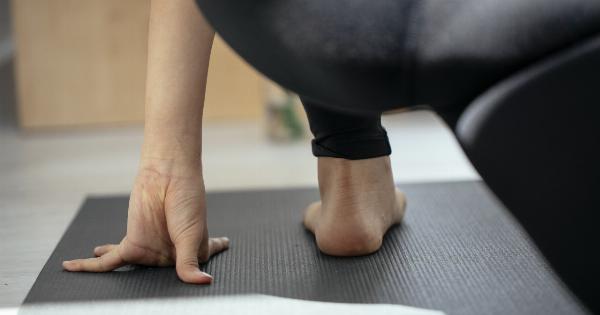In today’s society, traditional gender roles concerning parenting have gradually evolved. While women are still often perceived as the primary caregivers, men are increasingly taking on more active roles in raising their children.
However, despite this progress, there persists a prevailing myth that men are somehow less naturally equipped for parenting and are therefore more exhausted by the demands of raising children. In this article, we will explore the dynamics of men and parenting, debunk the myth of parental exhaustion, and highlight the importance of gender equality in caregiving responsibilities.
The Shifting Landscape of Parenting
Over the past few decades, the definition of fatherhood has expanded, and the expectations placed on men as parents have changed. Traditionally, fathers were perceived as the breadwinners, while mothers were considered the primary nurturers.
However, societal shifts have challenged these conventional norms, and men are now encouraged to actively participate in their children’s lives.
Men have been increasingly seeking to create a work-life balance, allowing them to be more present in their children’s upbringing. As a result, the role of fathers has evolved from being mere providers to becoming emotionally involved caregivers.
Research has shown that children benefit greatly from having active and engaged fathers, experiencing enhanced emotional well-being, social development, and educational success.
Challenging the Myth of Exhaustion
One common misconception that persists is that men are more exhausted by the demands of parenting compared to women. This assumption stems from the belief that men are less naturally inclined towards nurturing and caregiving.
However, the idea that men are inherently less equipped to handle the responsibilities of parenting is not supported by scientific evidence.
Studies have consistently shown that men possess the same innate abilities to nurture and care for their children as women do.
While there may be individual differences in parenting styles and approaches, overall, men are just as capable of meeting the needs of their children. The perceived exhaustion experienced by some fathers is often a result of external factors such as societal expectations, lack of support systems, or unequal division of parenting responsibilities.
The Importance of Gender Equality in Parenting
To dispel the myth of exhaustion and support men in their parenting journeys, it is crucial to advocate for gender equality in caregiving.
Gender equality in parenting involves recognizing and challenging gender stereotypes, promoting shared parenting responsibilities, and providing adequate support systems for fathers.
By debunking the myth of exhaustion, we empower fathers to embrace their roles as caregivers and providers.
Men who are actively involved in their children’s lives not only create healthier relationships with their offspring but also contribute to a more equitable and inclusive society.
Breaking Down Societal Barriers
Breaking down societal barriers is essential in encouraging men’s active participation in parenting. Firstly, there needs to be a cultural shift that challenges traditional gender roles and expectations.
Society must create an environment that recognizes and values men’s contributions as caregivers.
Educational institutions and workplaces can also play a significant role in fostering gender equality in parenting responsibilities.
Offering parental leave and flexible working arrangements for both men and women can help create a more balanced approach to caregiving. Additionally, providing parenting programs and resources specifically tailored to men can further support their involvement in childcare.
Supportive Networks and Communities
Building supportive networks and communities is crucial for men navigating the challenges of parenting. Mutual support can be found through online forums, community centers, and support groups that cater to the experiences and needs of fathers.
Encouraging dialogue and sharing experiences can help men create a sense of camaraderie and seek advice on various parenting topics.
Breaking the isolation often experienced by fathers can contribute to their overall well-being and enhance their parenting skills.
The Benefits of Involved Fathers
Men who actively participate in parenting experience numerous benefits, as do their children and partners.
When fathers are involved in their children’s lives, they help foster healthy attachment, emotional intelligence, and self-esteem in their offspring. This involvement also positively impacts the relationship between fathers and their partners, creating a more egalitarian and fulfilling family dynamic.
Furthermore, when caregiving responsibilities are shared equally between parents, both individuals have the opportunity to pursue personal and professional goals.
Balancing work and family life becomes more manageable when responsibilities are divided equitably, benefiting the well-being and overall satisfaction of all family members.
Conclusion
The myth of exhaustion among men in parenting is unfounded and perpetuates harmful gender stereotypes. Men are fully capable of being nurturing, involved fathers, and challenging societal expectations is vital in promoting gender equality in parenting.
By creating supportive environments and providing adequate resources, we can empower men to embrace their role as caregivers and contribute to the overall well-being of their children and families.






























